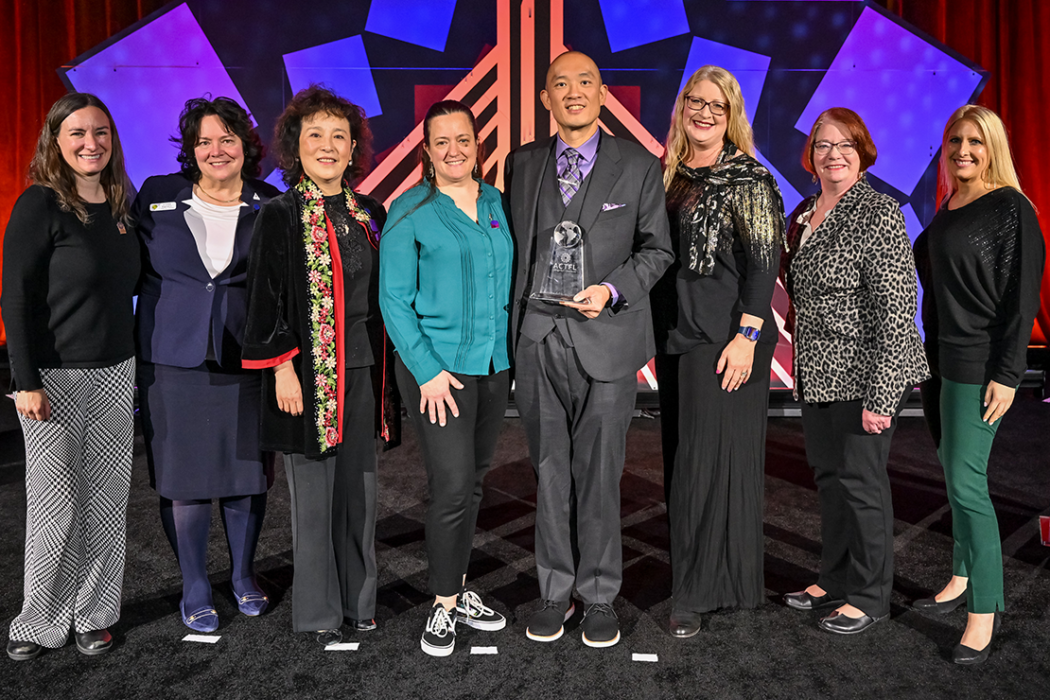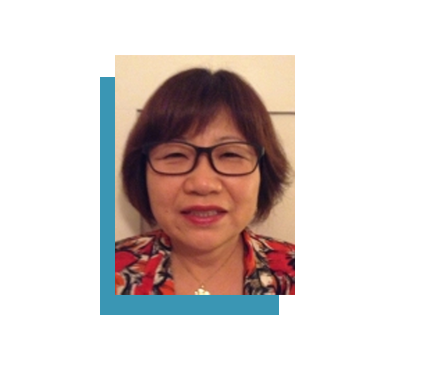Taeko Tashibu

2014 Hall of Fame Nominee

Roosevelt High School
Seattle, WA
2014 Finalist from PNCFL
I would like to list a few of the ways that I promote student’s exposure to Japanese use and culture beyond the classroom setting. The first, and perhaps largest, exposure to culture that the students in my classes have is gained from our sister school connections with Tatsuno High School in Tatsuno, Hyogo, Japan. A delegation of their students comes to our high school annually, and we visit them biannually. When the Tatsuno delegation comes to visit, it gives all of the Japanese language students a chance to interact with Japanese peers, even if they have never gone to Japan themselves. Because the students are in a similar age range, it gives the students a real chance to use Japanese for communication in real life situations. For the delegations from our school that visit Japan, it is a chance for them to be immersed in Japanese culture for a while and experience homestays.
Secondly, there is the annual Washington State High School Japanese Speech and Skit Contest. I’m very happy to say that every year some of my students participate in different levels of this competition. It is a chance for students to use their Japanese communication skills in a different setting than my classroom. And it gives them a chance to come with other schools in the state. We often goon a class field trip and it gives my students the chance to hear all different levels of Japanese use and encourages them to continue their Japanese studies. For the past decade, the first place prize for speech has included a trip to Japan, so a number of my students have also been able to participate in homestays and more Japanese culture because of this event. This year, one of my students won at the 3rd level and went back to his Japanese immersion elementary school, and presented his speech to them after he participated in the official speech contest.
Thirdly, there is a High School Language & Culture Camp. For many years this camp was partially funded by the Consulate General of Japan, Seattle, which allowed overnight experience of Japanese culture in an immersion setting at Camp Don Bosco. This camp gives students the opportunity to be surrounded by Japanese speakers, and it encouraged them to use their Japanese skills for practical communication. It is a great opportunity, especially for students who might not be able to afford trips to Japan. It also fosters more confidence in their Japanese skills because they are using it with people besides their classroom teacher. It also allows them to see many different people using the language: from college students to community volunteers and other Japanese teachers.
Finally, this past year, the Japanese program at Roosevelt High School was selected to be part of the Kizuna Project. This is a project where around one thousand American students were given the opportunity to visit Japan, specifically the Tohoku region, the region devastated by the Great Tohoku Earthquake of 2011. The project’s purpose was to show how quickly they have been able to recover some parts of the area, and to show appreciation for the support that the United States gave after the earthquake. It also helps to support better understanding of natural disasters and the prevention of them. In exchange for this wonderful opportunity, the students hosted a Japanese student from the same area when they visited for a few days earlier this year. The picture for his shows two of the students at the 2nd annual memorial of the March 11th earthquake and tsunami that took place at the Seattle Center the day the group arrived.
Besides those four major events that I encourage my students to participate in, I also encourage students to expose themselves to Japanese culture in other, smaller ways. For example, for my AP students I encourage them to find different articles they can read in Japanese as well as graphic novels. These are sometimes things that only the highest level students can do. I also encourage them to watch Japanese movie without subtitles. For the lower level classes as well as AP I always encourage them to go to Japanese restaurants or make Japanese food at home. I also encourage them to participate and volunteer in different Japanese cultural events throughout the year, such as the Cherry Blossom Festival and the Obon Festival that take place locally. There is also an international film festival held in the city every year, and there are usually many Japanese films that I encourage my students to go and see, which they can do at all levels because of the subtitles. Sometimes to encourage students to do these types of things outside of the classroom, I have allowed them to show what they have done during class time, and sometimes include it as extra credit. In these ways, as well as others, I encourage my students to bring different aspects of Japanese culture and life into their own.